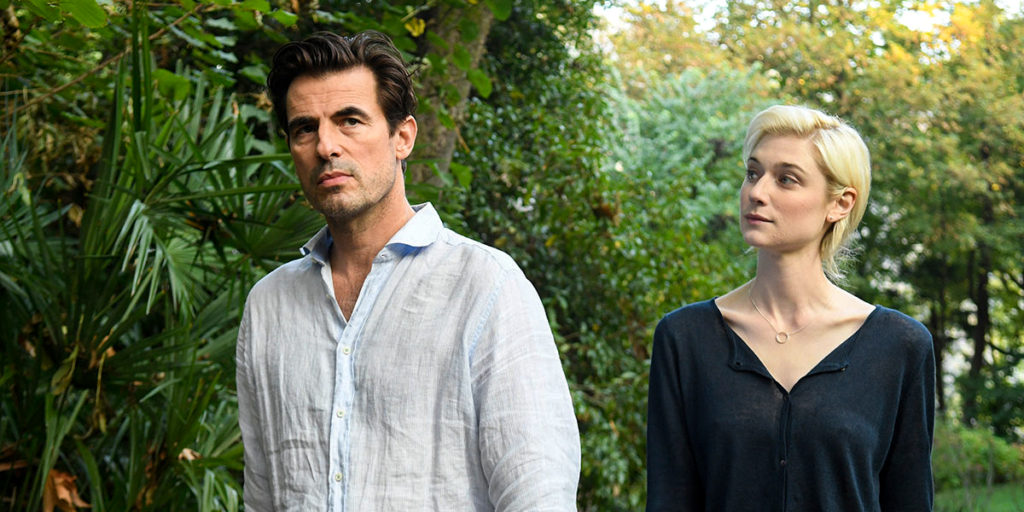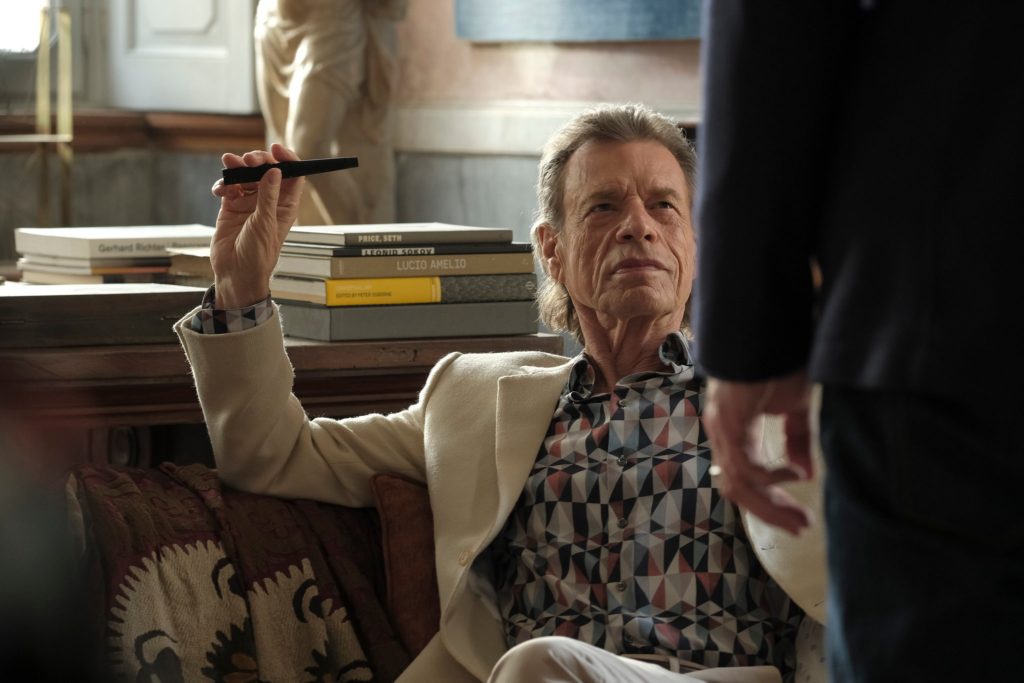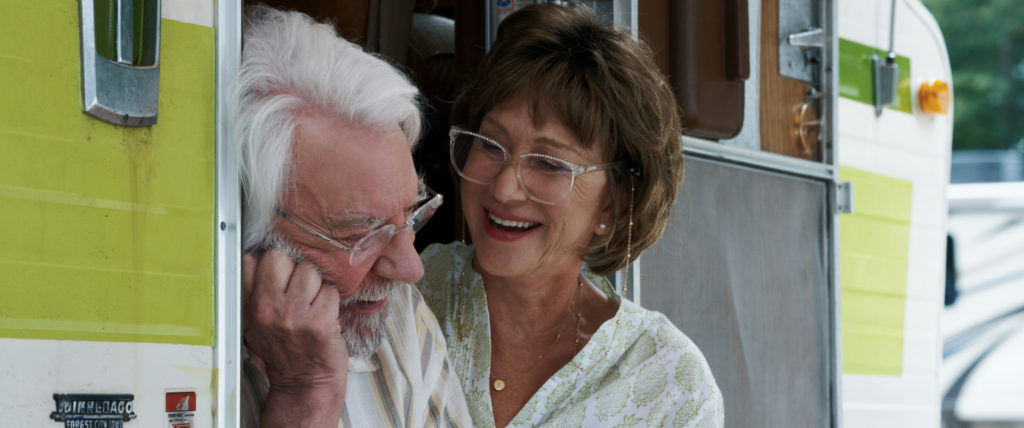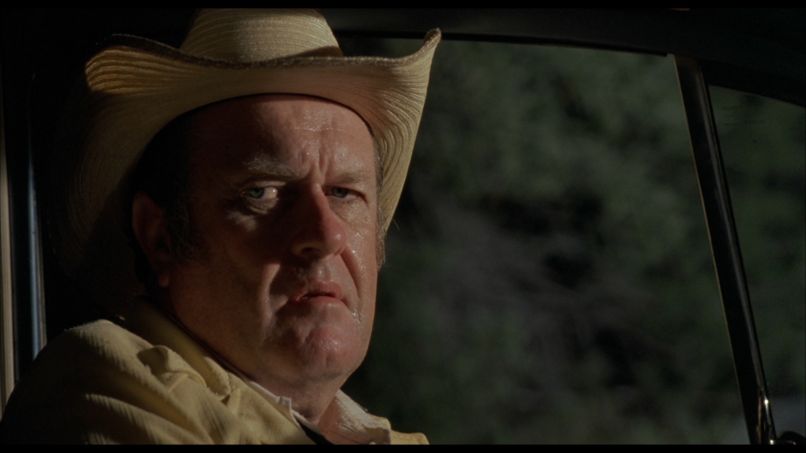
M. Emmet Walsh was one of cinema’s most stories, prolific (233 screen credits) and welcome character actors. Walsh was unforgettable as the murderous private detective Loren Visser in Blood Simple, a scary (and funny) concoction of amorality, sleaze and tenacity. He also elevated Midnight Cowboy, Little Big Man, What’s Up Doc?, Serpico, Blade Runner, Ordinary People, Slap Shot, Straight Time, Reds, Cavalry and Knives Out. There was only one T in Emmet, and the M stood for Michael.
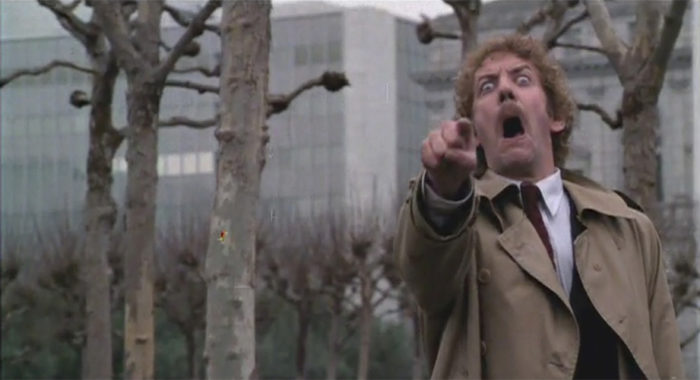
Donald Sutherland became a famous character actor playing quirky misfits in The Dirty Dozen and Kelly’s Heroes, and became a star as an iconic subversive in M*A*S*H*. His performances in Klute and Invasion of the Body Snatchers are indelible. Sutherland finished with 199 IMDb credits, including the Hunger Games franchise, and had three films released in 2023.
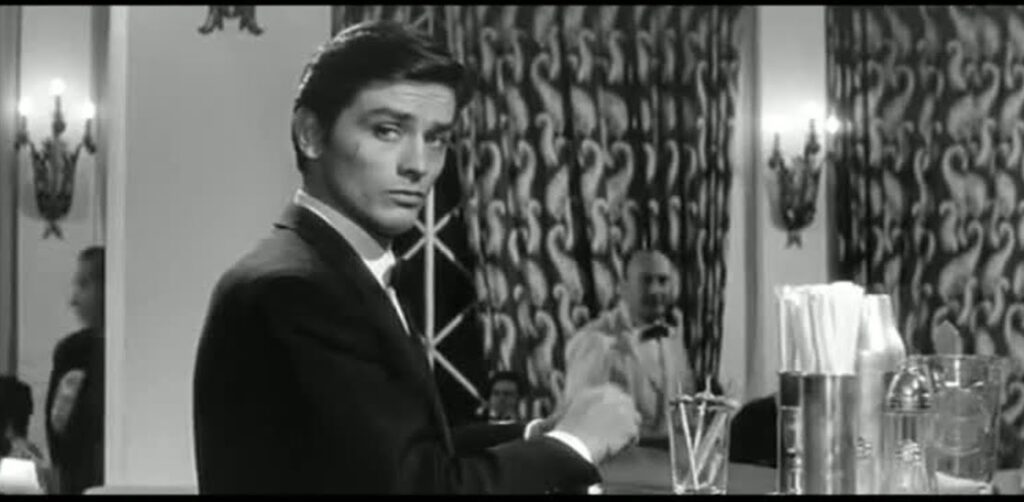
Impossibly handsome and dashing, no one ever removed their sunglasses with more of a flourish than iconic French leading man Alain Delon. Delon had eyes that can switch off any glimmer of empathy – perfect for playing sociopaths. Accordingly, he broke through internationally playing Patricia Highsmith’s Tom Ripley in Purple Noon (1960). Delon is best known for being a favorite of top European directors, starring in Visconti’s Rocco and His Brothers and The Leopard, Antonioni’s L’Eclisse, and Melville’s Le Samouri and Le Cercle Rouge. I also like Delon in the less famous caper movies Any Number Can Win and The Sicilian Clan. Mr. Klein, in which Delon played a sleazy French art dealer who took advantage of Nazi persecution of Jews, was a Lost Film, only becoming available again in the past five years. Sheila O’Malley has written most insightful essays on Delon and has posted the most playful photo of him.
Tom Wilkinson won an Oscar for Michael Clayton, but I best remember his searing performance in In the Bedroom and his delightful turn in The Full Monty.
James Earl Jones’ expressive face, imposing bearing and authoritative voice won him an Oscar for THE GREAT WHITE HOPE. The voice was enough by itself to dominate the STAR WARS franchise as Darth Vader.
Maggie Smith’s career began in the 1950s, and she was accomplished enough by the mid-1960s to play Desdemona to Laurence Olivier’s Othello. She won Oscars in the 70s for The Prime of Miss Jean Brodie and California Suite. Her popularity soared in the 2000s with Gosford Park, the Harry Potter franchise and her unforgettably withering Lady Violet Crawley in Downton Abbey.
Anouk Aimée starred in some of the most iconic European art films of the 1960s: Fellini’s 8 1/2 and La Dolce Vita and Lelouch’s A Man and a Woman.
Shelley Duvall will be best remembered for playing the wife of Jack Nicholson’s decompensating writer in The Shining. It’s hard to discuss American cinema of the 1970s without mentioning Duvall because six of her first seven movies were Robert Altman films (Brewster McCloud, McCabe and Mrs. Miller, Thieves Like Us, Nashville, Buffalo Bill etc., and 3 Women; the seventh was Annie Hall, in a hilarious turn as an Alvy Singer sex partner. She also played the waitress who prods Steve Martin’s Cyrano character into wooing Daryl Hannah’s Roxanne in Roxanne.
Gena Rowlands, Oscar-nominated as best actress for Gloria and A Woman Under the Influence, had a gift for authentic and wrenching performances. I also liked her in lighter fare like Minnie and Moskowitz and Night on Earth. She was the director John Cassavetes’ wife, muse and leading lady.
Beginning as a teen in 1960, Marisa Paredes presided over Spanish cinema with 120 acting performances through this year. American art house audiences knew her from Pedro Almodovar‘s High Heels, All About My Mother, The Flower of My Secret and The Skin I Live In.
Earl Holliman had the confidence, in one of his first movies, to put a unique spin on the role of a mob henchman in 1955’s The Big Combo. He continued to play character roles in big movies: Giant, Gunfight at the O.K. Corral and The Sons of Katie Elder. He went on to amass almost 100 credit in television, most popularly as Angie Dickinson’s boss in Policewoman/ most of his TV work was forgettable, but he did star in the first ever episode of The Twilight Zone.
British actor Timothy West became recognized in the US for his titular performance in the imported mini-series Edward the King, as the son of Queen Victoria, who simmered for decades, waiting for his chance to become King Edward VII. I loved him one of my favorite movies, Day of the Jackal. West’s 151 screen credits included three portrayals of Winston Churchill. As prolific as he was in television and the movies, he had even more of an impact on stage. He was a member of the Royal Shakespeare Company and the Prospect Theater Company, served as artistic director of the Old Vic Theater, and, at age 81, played the role of King Lear for the fourth time.
Louis Gossett, Jr., won an Oscar for his drill sergeant in An Officer and a Gentleman. He also played Fiddler in Roots, amid 198 other screen appearances.
I was surprised that Teri Garr had 44 screen credits (many as a dancer, including Viva Las Vegas) BEFORE her breakthrough role as Inga in Young Frankenstein. Then she played the mom in Close Encounters of the Third Kind, earned an Oscar nod for her most memorable role in Tootsie and went on to work in 200 more movies and shows.
Dabney Coleman, a versatile and prolific character actor, perfected the clueless, boorish boss characters in 9 to 5 and Tootsie. As gifted as he was in those comedic roles, he also worked in a wide range of fine movies: Downhill Racer, Cinderella Liberty, Midway, Go Tell the Spartans, North Dallas Forty and Melvin and Howard. Coleman topped off his career with roles in Boardwalk Empire, Ray Donovan and, as John Dutton, Sr., in Yellowstone.
Tony Lo Bianco first made his name in a perverse movie that became a cult film, The Honeymoon Killers. He went on to act in the 1970s classics The French Connection, The Seven Ups, Jesus of Nazareth, and lots and lots of TV work. I especially admire his performance in John Sayles’ City of Hope.
Carl Weathers retired from pro football at 26, played a football player in Semi-tough, and then the unforgettable Apollo Creed in the Rocky franchise. He recently starred in The Mandalorian and directed some of it. Personal note: his film Action Jackson was playing theaters in Santiago, Chile, when I visited in 1984.
You’ve seen David Harris in Brubaker, A Soldier’s Story, and NYPD Blue, but his most memorable role was early on, in Walter Hill’s indie cult classic The Warriors.
I didn’t remember the name of actor Jonathan Haze, who worked in a score of Roger Corman’s low budget exploitation films. His most memorable starring role was in Little Shop of Horrors, where his character cultivated a flesh-eating houseplant and pulled a tooth from a masochistic dental patient (Jack Nicholson).

